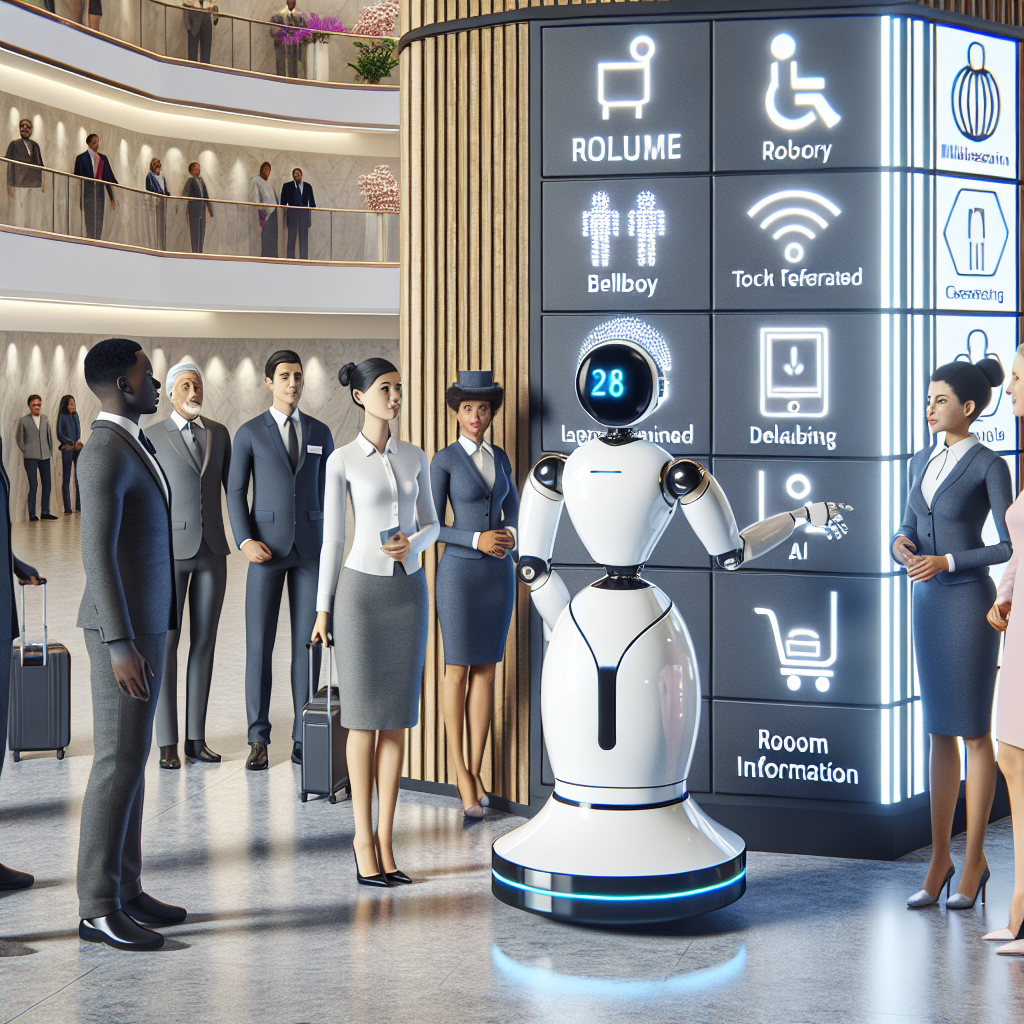The hospitality industry is constantly evolving, with new technologies being introduced to enhance the guest experience. One of the most exciting developments in recent years is the integration of artificial intelligence (AI) into the hospitality sector. AI has the potential to revolutionize the way hotels and other hospitality businesses operate, from streamlining processes to personalizing guest experiences. In this article, we will explore the future of AI integration in the hospitality industry and the potential benefits it can bring.
AI Integration in the Hospitality Industry:
AI technology is already being used in various aspects of the hospitality industry, from chatbots and virtual assistants to predictive analytics and personalized recommendations. These AI-powered tools can help hotels and other businesses improve efficiency, reduce costs, and enhance the overall guest experience. Here are some ways AI integration is shaping the future of the hospitality industry:
1. Personalized Guest Experiences:
AI can help hotels and other hospitality businesses personalize the guest experience by analyzing data and predicting guest preferences. For example, AI algorithms can analyze guest booking history, online interactions, and social media activity to create personalized recommendations for activities, dining options, and room preferences. This level of personalization can help businesses build stronger relationships with guests and increase customer loyalty.
2. Streamlined Operations:
AI-powered tools can help hotels streamline their operations by automating repetitive tasks and processes. For example, AI chatbots can handle guest inquiries and reservations, freeing up staff to focus on more complex tasks. AI can also be used to optimize pricing strategies, manage inventory, and predict demand, helping businesses make data-driven decisions that can improve efficiency and profitability.
3. Enhanced Safety and Security:
AI technology can also be used to enhance safety and security in the hospitality industry. For example, AI-powered surveillance systems can monitor guest activity and detect suspicious behavior, helping to prevent theft, vandalism, and other security threats. AI can also be used to analyze data from keycard access systems and other security measures to identify potential vulnerabilities and improve overall security protocols.
4. Improved Marketing and Sales:
AI can help hospitality businesses improve their marketing and sales efforts by analyzing customer data and predicting trends. For example, AI algorithms can analyze guest feedback and social media activity to identify trends and preferences, helping businesses tailor their marketing campaigns to target specific customer segments. AI can also be used to optimize pricing strategies and promotions, increasing revenue and profitability.
5. Sustainable Practices:
AI technology can also help hospitality businesses adopt more sustainable practices. For example, AI-powered energy management systems can analyze data from sensors and smart devices to optimize energy usage and reduce waste. AI can also be used to track and analyze water usage, waste production, and other environmental metrics, helping businesses implement more sustainable practices and reduce their carbon footprint.
FAQs:
1. How can AI improve the guest experience in the hospitality industry?
AI can improve the guest experience by personalizing recommendations, streamlining operations, enhancing safety and security, improving marketing and sales efforts, and promoting sustainable practices. AI-powered tools can analyze guest data to predict preferences, automate tasks, monitor security threats, optimize pricing strategies, and reduce waste, all of which can enhance the overall guest experience.
2. What are some examples of AI-powered tools in the hospitality industry?
Some examples of AI-powered tools in the hospitality industry include chatbots and virtual assistants for guest inquiries and reservations, predictive analytics for pricing and demand forecasting, surveillance systems for security monitoring, energy management systems for sustainability, and marketing automation platforms for personalized marketing campaigns.
3. How can AI help hospitality businesses increase revenue and profitability?
AI can help hospitality businesses increase revenue and profitability by optimizing pricing strategies, identifying trends and preferences, targeting specific customer segments, and reducing costs through automation and efficiency improvements. By leveraging AI technology, businesses can make data-driven decisions that can improve performance and drive growth.
4. What are some challenges of AI integration in the hospitality industry?
Some challenges of AI integration in the hospitality industry include data privacy concerns, security risks, implementation costs, staff training, and customer acceptance. Businesses must carefully consider these challenges and develop strategies to address them effectively to ensure the successful integration of AI technology.
In conclusion, AI integration has the potential to revolutionize the hospitality industry by improving the guest experience, streamlining operations, enhancing safety and security, boosting marketing and sales efforts, and promoting sustainable practices. By leveraging AI-powered tools and technologies, hospitality businesses can stay ahead of the competition, drive growth, and create more memorable experiences for their guests. As AI technology continues to advance, the future of AI integration in the hospitality industry looks promising, with endless possibilities for innovation and improvement.

